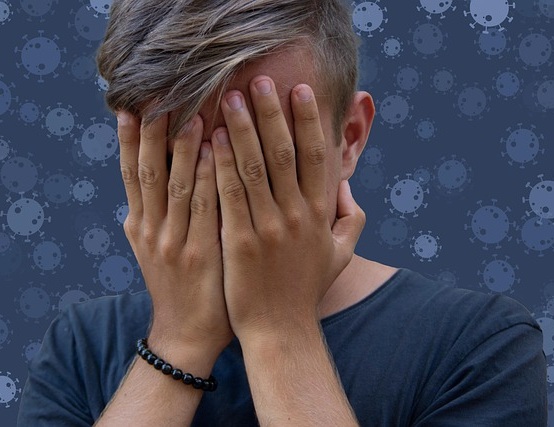Myth: Poor Mental Health is not a Big Issue for Teenagers

Debunking the Myth: Poor Mental Health is not a Big Issue for Teenagers
Do you think teenagers are just “moody” and their mental health issues aren’t serious? The myth that poor mental health is no big deal for teens dismisses a critical issue affecting millions. Let’s explore its cultural roots, unpack its meanings, and debunk it with science to show why teen mental health demands our attention.

Origins of the Teen Mental Health Myth
The idea that teen mental health struggles are trivial has deep roots in history and culture. Let’s trace where this misconception began.
Historical Views on Adolescence
In the early 20th century, adolescence was seen as a stormy phase of rebellion, not a time for serious mental health concerns. Psychologists like G. Stanley Hall (1904) framed teens as naturally volatile, leading adults to downplay their struggles (University of Michigan, 2019). This set the stage for dismissing adolescent mental health issues as “just growing up.”
Cultural Dismissal of Emotions
Many societies historically viewed emotional struggles as weakness, especially for young people expected to “tough it out.” In Western cultures, this attitude often meant teens’ cries for help were ignored, reinforcing the teen mental health myth (Yale University, 2020).
Cultural Variations of the Myth
Western Perspectives
In the U.S. and Europe, teens are often seen as dramatic, with their mental health issues brushed off as hormones or rebellion. While awareness is growing, some parents still hesitate to seek help, fearing stigma or believing it’s a phase (Harvard Medical School, 2021).
Asian Cultural Norms
In countries like Japan and South Korea, academic pressure is intense, yet mental health struggles are often downplayed. Cultural emphasis on resilience and family honor can silence teens, making teenage anxiety seem trivial (Kyoto University, 2022).
African Contexts
In parts of Africa, like Nigeria, mental health is often tied to spiritual beliefs, with teen struggles blamed on curses or moral failings. This can overshadow youth mental wellness needs, though urban areas are starting to embrace modern psychology (University of Lagos, 2020).
Latin American Views
In Mexico and Brazil, family-centric cultures may view teen emotional issues as private matters, not medical ones. This can lead to underreporting of adolescent mental health challenges, despite rising awareness (University of São Paulo, 2021).
Symbolic Meanings of the Myth
Teens as Resilient
The myth paints teens as inherently tough, able to bounce back from anything. While resilience is real, it ignores how teenage anxiety or depression can spiral without support, creating a false sense of invincibility.
Mental Health Stigma
Dismissing teen mental health reflects broader stigma around mental illness. By calling teen struggles “normal,” society avoids confronting the need for systemic change, like better access to counseling.
Modern Interpretations and Data
Rising Mental Health Issues
Studies show teen depression and anxiety are surging. In the U.S., 1 in 5 teens experiences a mental health disorder yearly, with 50% of lifetime mental illnesses starting by age 14 (National Institute of Mental Health, 2023). This makes the myth dangerously outdated.
Social Media’s Role
Social media amplifies teenage anxiety, with constant comparison and cyberbullying taking a toll. Platforms like Instagram can harm self-esteem, yet they also offer spaces for teens to seek support, showing a complex modern landscape.
Access to Care
While awareness grows, many teens still lack access to mental health resources. Schools and communities are starting to offer counseling, but gaps remain, especially in rural areas (CDC, 2022).
Debunking Common Misconceptions
Teen Struggles Are Just Hormones
Hormones play a role, but teen depression myths oversimplify things. Conditions like depression or anxiety often have genetic, social, or environmental triggers, not just biology (Stanford University, 2021).
Teens Will “Grow Out” of It
Some issues fade, but untreated mental health problems can persist into adulthood. Early intervention cuts the risk of lifelong struggles by 50% (American Psychological Association, 2020).
Mental Health Issues Are Rare
Far from it—13% of U.S. teens aged 12–17 had a major depressive episode in 2022 (CDC, 2023). Ignoring this dismisses a widespread crisis.
Supporting Teen Mental Health
Encouraging Open Conversations
- Listen without judgment: Let teens share without fear of dismissal.
- Validate feelings: Acknowledge their struggles as real and serious.
- Educate families: Teach parents to spot signs like withdrawal or irritability.
Creating safe spaces helps teens seek help early.
Professional Support
- Counseling: Therapy, like cognitive-behavioral therapy, is highly effective.
- School programs: Mental health workshops can normalize seeking help.
- Hotlines: Resources like the 988 lifeline offer immediate support.
Access to professionals is key to breaking the myth.
Conclusion
The myth that poor mental health isn’t a big issue for teens ignores a growing crisis that affects millions worldwide. From cultural stigmas to modern pressures like social media, this misconception has deep roots—but science shows we must act. Explore more myths with us at omnimyths.com and help support teen mental health today!
Frequently Asked Questions
Q: Why is teen mental health often dismissed?
A: Cultural views of teens as “moody” and stigma around mental illness fuel the teen mental health myth, despite rising evidence of serious issues.
Q: How common are mental health issues in teens?
A: About 1 in 5 teens faces a mental health disorder yearly, with depression and teenage anxiety affecting millions (CDC, 2023).
Q: What’s the difference between normal teen moods and mental health issues?
A: Normal moods fluctuate but resolve; adolescent mental health issues, like persistent sadness or anxiety, disrupt daily life and need support.
Q: How can parents support teen mental health?
A: Listen openly, validate feelings, and seek professional help like counseling to address youth mental wellness challenges early.
Q: Why do some cultures downplay teen mental health?
A: Some cultures view emotional struggles as weakness or spiritual issues, overshadowing the need for teen mental health care.
Q: How does social media impact teen mental health?
A: Social media can worsen teenage anxiety through comparison but also offers support networks, creating a mixed impact.
